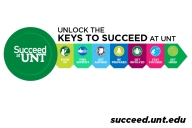You have /5 articles left.
Sign up for a free account or log in.
As thousands of students armed with smartphones start the new school year, they’ll have plenty of social media options to choose from to find friends and connect with their peers. But at a select group of college campuses, a new player has entered the scene -- a student-centered networking app called Islands.
Billed as "Slack for college students," Islands is a location-based app designed specifically with college students, rather than business colleagues, in mind. In an interview, Greg Isenberg, CEO of Islands, said that he wanted to create an experience that will “delight people” and help “connect the disconnected.”
Of course, students already have a lot of ways to connect with each other on campus, but Isenberg believes that a lot of students use apps like GroupMe out of necessity rather than by choice. “Ask any college kid what they think of GroupMe, and at least 75 percent will have had a negative experience with it,” said Isenberg. “It’s crazy, because if you ask them what are the three biggest apps they use on campus, they’ll tell you Instagram, Snapchat and GroupMe. You have millions of daily active users using a product, and they’re not even loving the experience.”
The premise of the Islands app is simple. If you’re within range of a college campus with access to the app, you’ll be able to log in with your Facebook account or email. Inside the app you’ll find a number of different group chats, or “islands.” Some are public, meaning anyone can join. Some are private, and you must request to join the group. Example public islands available when you log into the app include Buy & Sell, Pickup Basketball and Undergraduate Library. The aim of the app is to connect students to groups of people “they might never have found” otherwise -- whether that is a new best friend, a study partner or someone to play sports with.
The way that you choose to communicate when you start a private island is customizable, Isenberg explains. “We give people the Lego building blocks to create a space however they want. If they want to have a room that is anonymous, they could. If they want to have a room where all the messages disappear after an hour, great. If they want the room to just be for sharing photos, they can do that.”
Looking Back on Yik Yak
The ability to post anonymously on Islands has sparked comparisons with another campus-based social media app -- Yik Yak. Though Yik Yak officially shut down operations earlier this year, at its peak the app was ubiquitous on college campuses, and at one point was valued at hundreds of millions of dollars. A spate of controversies, however, including numerous incidents of targeted racist, sexist and homophobic comments, in addition to several high-profile threats of violence via the app, forced Yik Yak to rethink its anonymity policy. Subsequently, students abandoned the app, much to the relief of many college administrators tasked with monitoring its content. Those with long memories will remember that before Yik Yak, there was JuicyCampus -- another anonymous college gossip app that quickly turned poisonous and was shut down after two years.
Isenberg, whose team consists of some early Yik Yak staffers, said that there were “tons of lessons to be learned” from the failure of Yik Yak. “Creating an anonymous-only app is a recipe for disaster,” said Isenberg. While Islands does have some anonymous chat spaces, most posts are made nonanonymously, he said. Users are also prompted to link their Facebook, Snapchat and Instagram accounts so that other students can easily find and follow them. “We need to know that you’re a real person,” said Isenberg.
Another lesson Isenberg says he has taken from Yik Yak is not to expand too quickly. The Islands app launched earlier this month at eight campuses, and is planning to expand to 75 campuses by this time next year, but Isenberg said that “growth at all costs” is not on the cards.
Ensuring the team has the capacity to monitor comments on each new campus is a big factor in the company’s growth plans, said Isenberg. “It’s really important to have moderators who can see if there’s any negativity or bullying,” he added. All public islands on the app are monitored by paid staff, while private islands will be self-policed by the group’s creator or appointed administrators. If users are repeatedly kicked out of group chats by these moderators, they can be banned from the app entirely. “We want to make sure there’s no hatred,” said Isenberg.
Anonymity Concerns
Keith Marnoch, director of media and community relations at the University of Western Ontario, said he is aware of students at his institution using the Islands app. While he said it was positive that the campus has a new communication platform, he said he has concerns about the app potentially being used for bullying. While his institution is not intending to monitor the app full-time, Marnoch said the university would have a responsibility to respond to students if they brought forward any concerns. “The problem is that the anonymity aspect will make it very difficult for us to act. It’s tricky,” he said.
Eric Stoller, a higher education and student affairs consultant (who also blogs for Inside Higher Ed) said that he felt that Islands as a “less formal” and “more youth-oriented” version of Slack could do very well, but warned that anonymity “has proven to be the conduit of a lot of negativity” in the past. Though he points out users can of course post positive messages anonymously, Stoller said that the negative aspects of anonymity “always outshine any benefits.”
Given the understandable concerns over anonymity, why keep this aspect in the app at all?
Isenberg said that he felt anonymity was important because it allows students to express themselves and discuss difficult topics. “Some people are afraid to talk about things openly … just afraid. It’s been really inspiring to see how anonymity has allowed some kids to talk about real issues,” he said.
Rey Junco, a fellow at the Berkman Klein Center for Internet and Society at Harvard, agreed with Isenberg that anonymity can be a force for good. Junco’s research has focused on how social media affects young people’s psychological development. He said that while he understands the reservations about anonymity, he believes it is important for young people to be able to explore different identities in a safe way. “Let’s say someone is exploring an LGBT identity, or a nonmajority religious identity -- anonymity can allow you explore that without the danger that is inherent in doing that elsewhere,” said Junco.
Asked whether he felt it was important for apps with anonymous capability to monitor content and report any potential threats to the relevant authorities, Junco said, “Absolutely. This is Spider-Man -- with great power comes great responsibility.” Reflecting on the development of Yik Yak, Junco said that early adopters had created a healthy community, where people who said hurtful things were called out. “It’ll be really interesting to see how civil this new space is, especially in the post-2016 era when we’re seeing a lot of hate speech and harassment. I’m curious to see how the current environment will help or hinder developers.”
Future Islands Expansion
With a fun tropical theme, trendy sweatshirts and hats stamped with their logo, and a growing squad of on-campus brand ambassadors, Isenberg said, Islands has seen promising adoption rates from students at the seven campuses in the United States where the app is enabled -- the Universities of Alabama, Florida, Georgia and South Carolina; Clemson and Auburn Universities; and the College of Charleston. The app is also available at the University of Western Ontario in Canada, where Isenberg stayed on campus to conduct market research.
In the U.S., Islands has focused mostly on Southern colleges outside of main cities, said Isenberg, as these are institutions where communities and groups on campus play a big part in students’ lives. Isenberg said that the Islands team has particularly reached out to student leaders in the LGBT and Greek communities on these campuses, as well as members of student governments, to ask them to become brand ambassadors. “These students are often very excited because they don’t always have a space for their community to connect. They spread the word to their constituents, and that’s how we grow,” said Isenberg.
Isenberg says that so far feedback on the app has been positive -- “I can’t tell you how exciting it is to build something and see people connect over something they’re passionate about, and then meet up in real life,” he said. “Students are ready for something new.” Though Isenberg did not wish to disclose how many active users were on the app, he said that the percentage of students using the app at some campuses had already exceeded 15 percent. “We’re always trying to hit the 15 percent mark -- that’s where we tend to see a tipping point and it just spreads virally on campus,” he said.
Asked whether he’d be happy for university faculty and staff to also join the app, Isenberg said, “We’d feel great about that -- any way we can help faculty and staff to connect to their students and see what’s going on on campus is a good thing.” Isenberg said that he’s already received emails from professors who are using the app to connect with students. “I love when I get emails from professors,” he said.
As for the app’s plans to make money, Isenberg said that monetization isn’t a priority in the short term, but there could be opportunities for promoted islands or in-app advertising in the future. Though Islands is primarily targeting college students right now, Isenberg said he could see it expanding to other demographics. According to VentureBeat, the app has already raised $1.85 million.
Stoller said that targeting college students is a good strategy -- “it’s a massive market that tends to have a snowball effect in terms of user growth,” he said. As to whether Islands could become as popular as Yik Yak once was, Stoller said we would have to wait and see. “I think these apps will continue to emerge, disappear and reappear,” he said.








